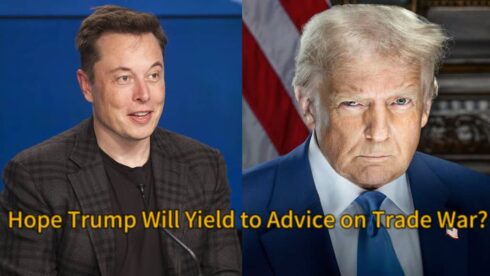Tesla has issued a stark warning that it and other U.S. exporters are at risk of facing retaliatory tariffs due to President Donald Trump’s aggressive trade policies. The electric vehicle giant emphasized that tariffs imposed by foreign governments in response to Trump’s protectionist measures could severely impact its global operations, disrupt supply chains, and inflate costs for consumers.
In its communication to the U.S. Trade Representative’s Office, Tesla expressed concerns that the new trade barriers could hinder its ability to compete in key markets. The company stressed that it sources critical components from countries targeted by Trump’s tariffs, and retaliatory measures could undermine its ability to deliver cost-effective electric vehicles.
Tesla Relies on Global Supply Chains at Risk of Disruption
Tesla’s success has been built on a complex and highly optimized global supply chain, making it particularly vulnerable to trade disruptions. The company imports key components such as lithium-ion battery cells, semiconductor chips, and specialized auto parts from multiple international suppliers, including those in China, Mexico, and the European Union. Any retaliatory tariffs from these regions could increase production costs and delay deliveries.
The automaker has previously navigated supply chain challenges, such as the semiconductor shortage and COVID-related shutdowns, but trade wars introduce a new level of uncertainty. Tesla’s ability to scale production and maintain affordability depends on uninterrupted global trade. With its Gigafactories in Berlin and Shanghai playing crucial roles in meeting global demand, punitive tariffs could directly impact Tesla’s pricing strategy and profitability.
Trump’s Trade Policies Pose an Existential Threat to Tesla’s Growth
Tesla’s aggressive international expansion has been a cornerstone of its strategy, but Trump’s protectionist policies threaten to derail its progress. The president, now in his second term, has revived his hardline approach to trade, imposing sweeping tariffs, including a 25% tax on Mexican and Canadian imports and a 10% tariff on all Chinese goods. These measures, intended to bolster domestic industries, could have the unintended consequence of handicapping their ability to operate efficiently.
Tesla is not alone in its concerns. Other American exporters, including tech giants and automakers, are bracing for economic retaliation from China and the European Union. If global markets close their doors to U.S. products in response to Trump’s policies, Tesla may be forced to shift manufacturing operations or absorb financial losses.
Retaliatory Tariffs Could Derail Tesla’s European and Asian Markets
Tesla’s European and Chinese markets are among its most lucrative, but both regions have signaled their willingness to impose countermeasures against the U.S. If tariffs make American-made Teslas significantly more expensive in these regions, consumers may opt for alternatives such as Volkswagen’s ID series or BYD’s electric lineup.
The European Union has already hinted at imposing higher tariffs on U.S. goods in response to Trump’s trade war, which could directly affect Tesla’s Berlin Gigafactory. Similarly, China could introduce tariffs on American-made Model S and Model X vehicles, making them less competitive against locally produced EVs. A full-fledged trade war could see Tesla lose market share in these key regions.
Tesla Advocates for a Diplomatic Approach to Trade Disputes
Tesla is urging the U.S. government to reconsider its aggressive trade stance to prevent unnecessary economic fallout. The company has long benefited from global trade policies that allow it to source materials efficiently and sell vehicles without excessive regulatory barriers.
As Tesla prepares for a future where tariffs could reshape the industry, it is lobbying for more measured trade negotiations that prioritize economic growth over political posturing. A balanced trade policy would allow them to continue expanding internationally without the looming threat of retaliatory tariffs disrupting its business.
The Future of Tesla Amidst Trade Uncertainty
Tesla’s future now hinges on how trade policies evolve in the coming months. If retaliatory tariffs are implemented, Tesla may be forced to rethink its supply chain strategy, raise prices, or shift more production overseas. The company has already demonstrated resilience in the face of past economic challenges, but a prolonged trade war could slow its momentum.
While Tesla remains a dominant force in the EV industry, the uncertainty surrounding U.S. trade relations is an unwelcome hurdle. Whether Trump’s tariffs will ultimately benefit or harm American companies remains to be seen, but for Tesla, the risks are clear. The automaker must now navigate one of the most unpredictable economic landscapes in its history.














